Discharge Debt Meaning
Discharge Debt Meaning - Simply put, a discharge of debts is a court order that releases you from personal liability for certain debts, meaning you are no longer required to. A bankruptcy discharge releases the debtor from personal liability for certain specified types of debts. To discharge a debt means to eliminate the debtor’s legal obligation to repay it. Discharge (of debts) is when a debtor is no longer liable for their debts, and the lender is no longer allowed to collect them. What is a discharge in bankruptcy? A discharge releases a debtor from personal liability of certain debts known as dischargeable debts, and prevents the creditors owed those. In other words, when a debt is discharged, the.
In other words, when a debt is discharged, the. A discharge releases a debtor from personal liability of certain debts known as dischargeable debts, and prevents the creditors owed those. A bankruptcy discharge releases the debtor from personal liability for certain specified types of debts. Discharge (of debts) is when a debtor is no longer liable for their debts, and the lender is no longer allowed to collect them. Simply put, a discharge of debts is a court order that releases you from personal liability for certain debts, meaning you are no longer required to. To discharge a debt means to eliminate the debtor’s legal obligation to repay it. What is a discharge in bankruptcy?
A bankruptcy discharge releases the debtor from personal liability for certain specified types of debts. Discharge (of debts) is when a debtor is no longer liable for their debts, and the lender is no longer allowed to collect them. In other words, when a debt is discharged, the. Simply put, a discharge of debts is a court order that releases you from personal liability for certain debts, meaning you are no longer required to. A discharge releases a debtor from personal liability of certain debts known as dischargeable debts, and prevents the creditors owed those. What is a discharge in bankruptcy? To discharge a debt means to eliminate the debtor’s legal obligation to repay it.
Bankruptcy Discharge What Debts Remain Lexington Law
A bankruptcy discharge releases the debtor from personal liability for certain specified types of debts. A discharge releases a debtor from personal liability of certain debts known as dischargeable debts, and prevents the creditors owed those. In other words, when a debt is discharged, the. To discharge a debt means to eliminate the debtor’s legal obligation to repay it. Simply.
What Debts Are Discharged in Chapter 7 Bankruptcy?
In other words, when a debt is discharged, the. A discharge releases a debtor from personal liability of certain debts known as dischargeable debts, and prevents the creditors owed those. A bankruptcy discharge releases the debtor from personal liability for certain specified types of debts. To discharge a debt means to eliminate the debtor’s legal obligation to repay it. What.
How Bankruptcy Gets Discharged Overview, Impact, Prevention
A bankruptcy discharge releases the debtor from personal liability for certain specified types of debts. In other words, when a debt is discharged, the. Discharge (of debts) is when a debtor is no longer liable for their debts, and the lender is no longer allowed to collect them. What is a discharge in bankruptcy? To discharge a debt means to.
PPT Chapter Twelve. The Automatic Stay—11 U.S.C 362 PowerPoint
Discharge (of debts) is when a debtor is no longer liable for their debts, and the lender is no longer allowed to collect them. A bankruptcy discharge releases the debtor from personal liability for certain specified types of debts. To discharge a debt means to eliminate the debtor’s legal obligation to repay it. In other words, when a debt is.
What Are The Dischargeable Debts In Bankruptcy?
In other words, when a debt is discharged, the. Discharge (of debts) is when a debtor is no longer liable for their debts, and the lender is no longer allowed to collect them. Simply put, a discharge of debts is a court order that releases you from personal liability for certain debts, meaning you are no longer required to. What.
Debt Discharge What it is, How it Works
To discharge a debt means to eliminate the debtor’s legal obligation to repay it. A bankruptcy discharge releases the debtor from personal liability for certain specified types of debts. A discharge releases a debtor from personal liability of certain debts known as dischargeable debts, and prevents the creditors owed those. Discharge (of debts) is when a debtor is no longer.
Bankruptcy Dismissal vs. Discharge What's the Difference and How They
Simply put, a discharge of debts is a court order that releases you from personal liability for certain debts, meaning you are no longer required to. To discharge a debt means to eliminate the debtor’s legal obligation to repay it. A discharge releases a debtor from personal liability of certain debts known as dischargeable debts, and prevents the creditors owed.
PPT rngbankrptcy PowerPoint Presentation, free download ID12193624
Simply put, a discharge of debts is a court order that releases you from personal liability for certain debts, meaning you are no longer required to. In other words, when a debt is discharged, the. A discharge releases a debtor from personal liability of certain debts known as dischargeable debts, and prevents the creditors owed those. Discharge (of debts) is.
What Is a Bankruptcy Discharge?
In other words, when a debt is discharged, the. To discharge a debt means to eliminate the debtor’s legal obligation to repay it. A bankruptcy discharge releases the debtor from personal liability for certain specified types of debts. Simply put, a discharge of debts is a court order that releases you from personal liability for certain debts, meaning you are.
Explained When Bankruptcy is Discharged [UPDATED 2023] LSS law
Simply put, a discharge of debts is a court order that releases you from personal liability for certain debts, meaning you are no longer required to. Discharge (of debts) is when a debtor is no longer liable for their debts, and the lender is no longer allowed to collect them. In other words, when a debt is discharged, the. To.
In Other Words, When A Debt Is Discharged, The.
What is a discharge in bankruptcy? A bankruptcy discharge releases the debtor from personal liability for certain specified types of debts. Simply put, a discharge of debts is a court order that releases you from personal liability for certain debts, meaning you are no longer required to. Discharge (of debts) is when a debtor is no longer liable for their debts, and the lender is no longer allowed to collect them.
To Discharge A Debt Means To Eliminate The Debtor’s Legal Obligation To Repay It.
A discharge releases a debtor from personal liability of certain debts known as dischargeable debts, and prevents the creditors owed those.

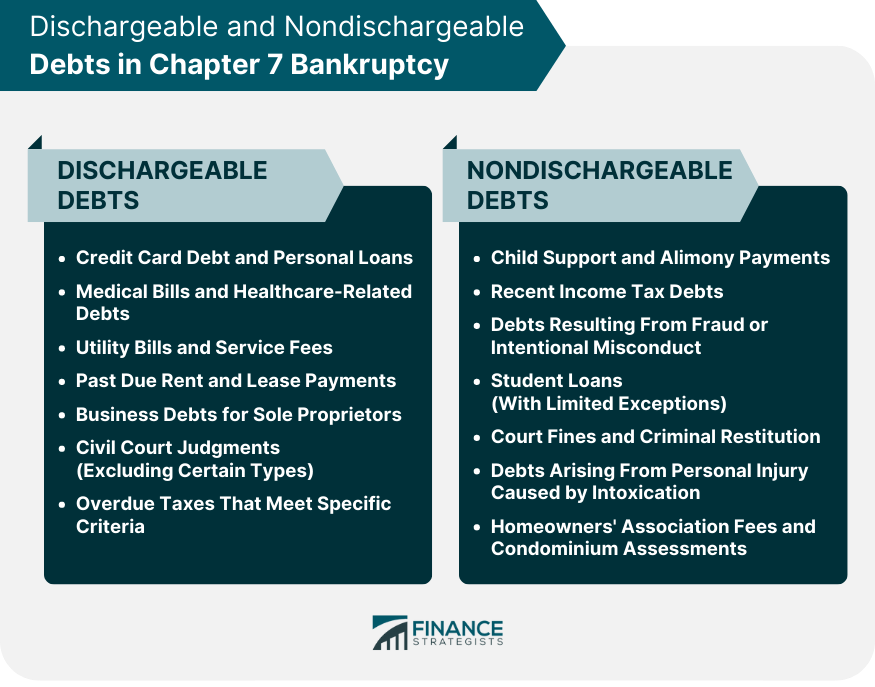
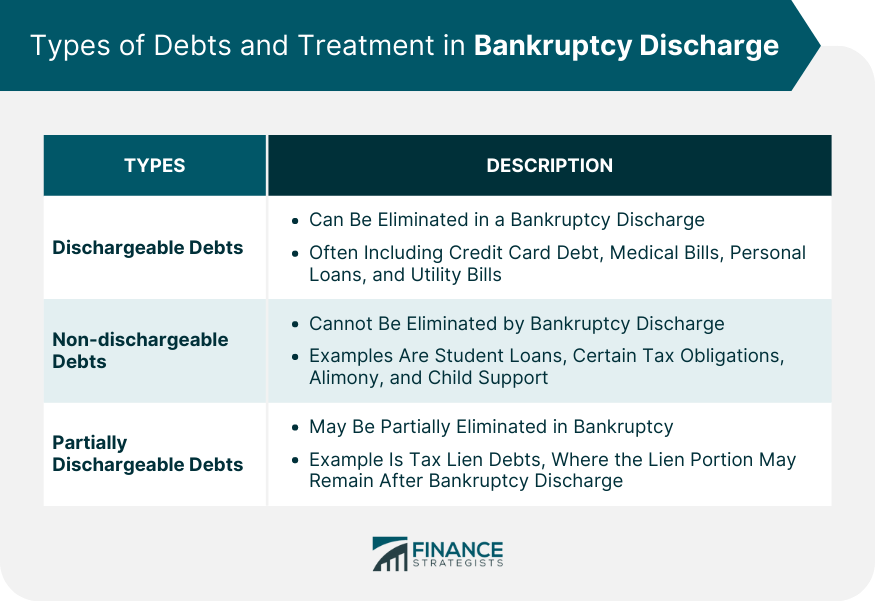
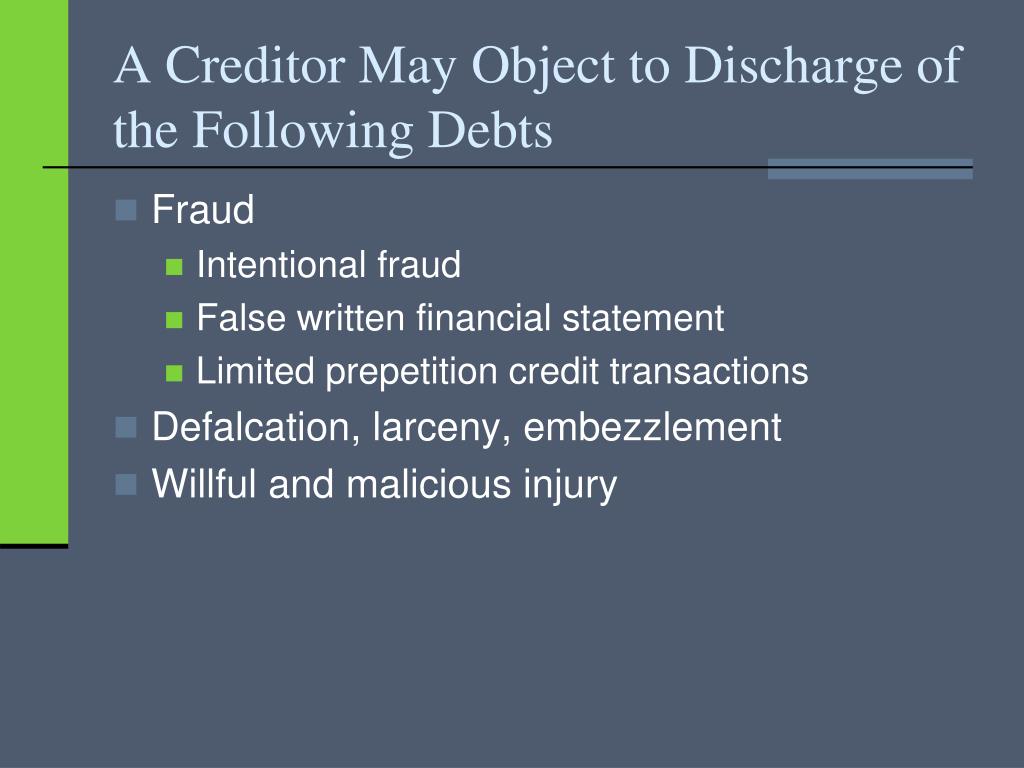
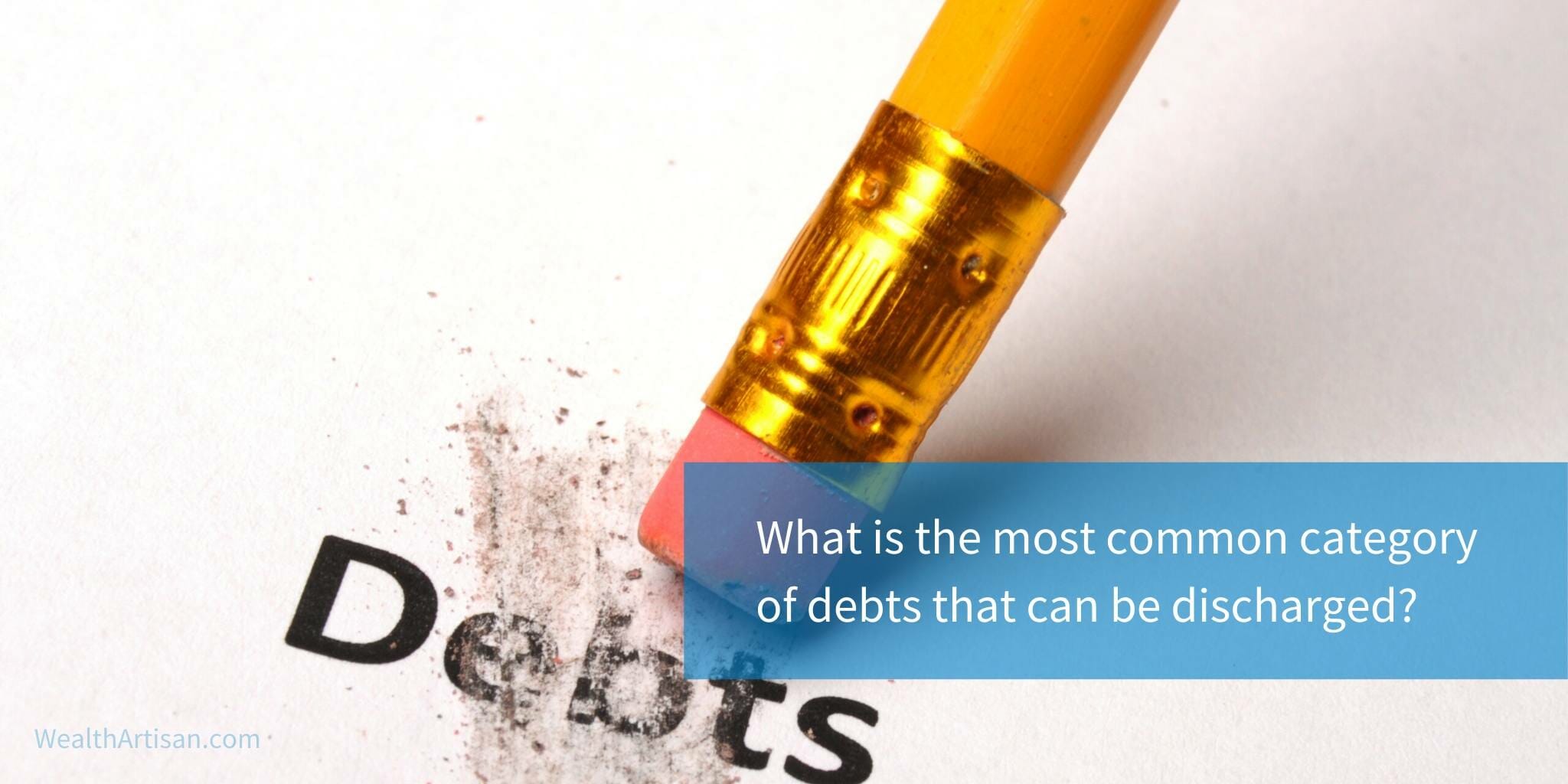
:max_bytes(150000):strip_icc()/finalnew-cd2c2367ef8f4fcdaa1e9218acf86c9d.jpg)
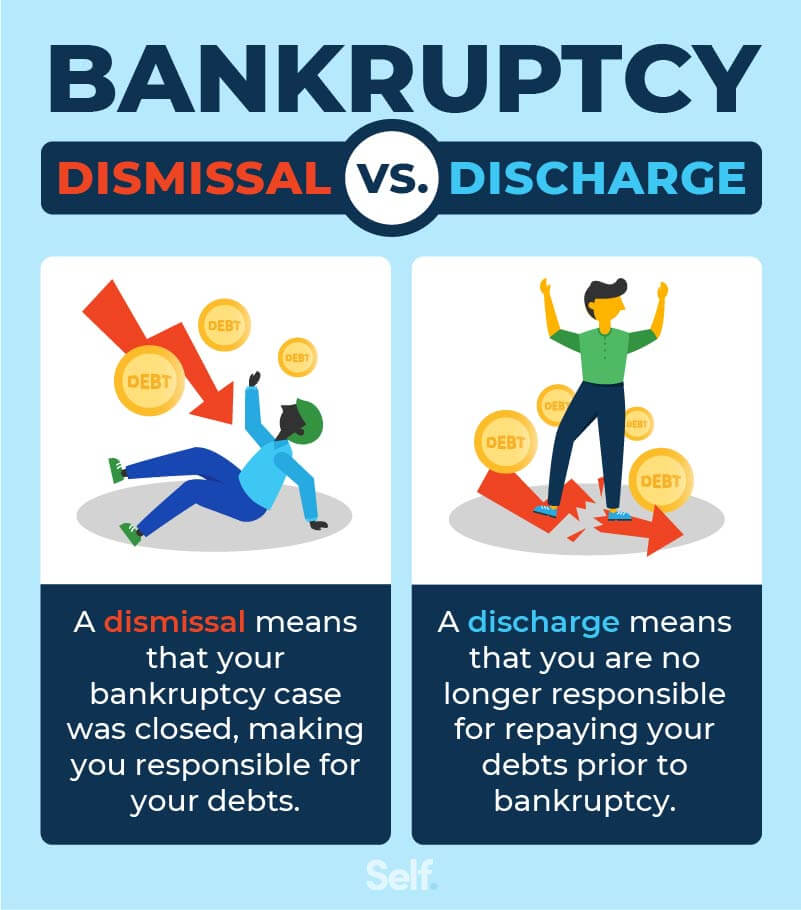
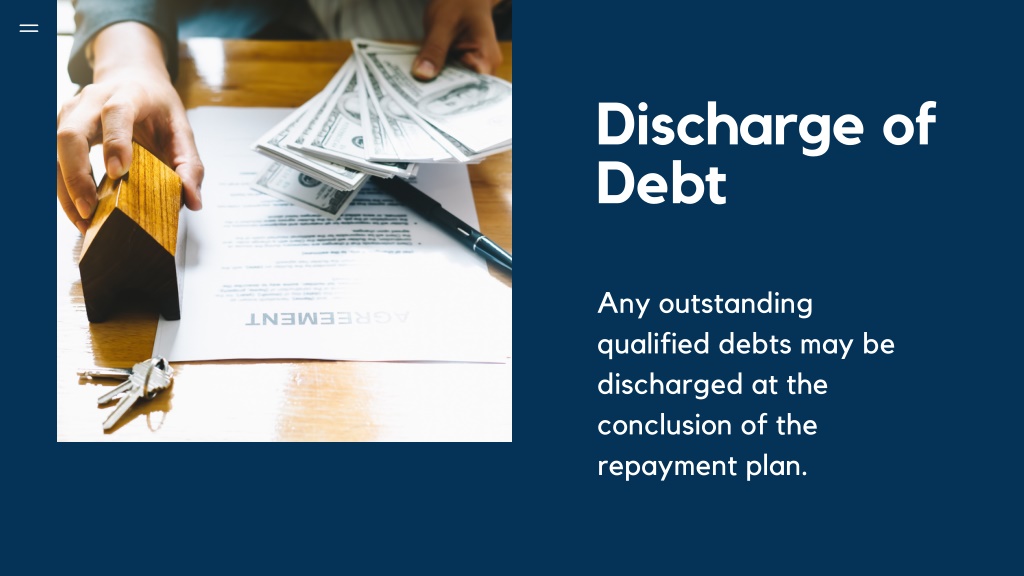
:max_bytes(150000):strip_icc()/bankruptcy-discharge-what-is-it-and-when-does-it-happen-8eafb0f711c24a048d4854a82cdb5f70.png)
![Explained When Bankruptcy is Discharged [UPDATED 2023] LSS law](https://images.surferseo.art/93ada430-2c43-4145-9c42-9f911848fb8a.png)